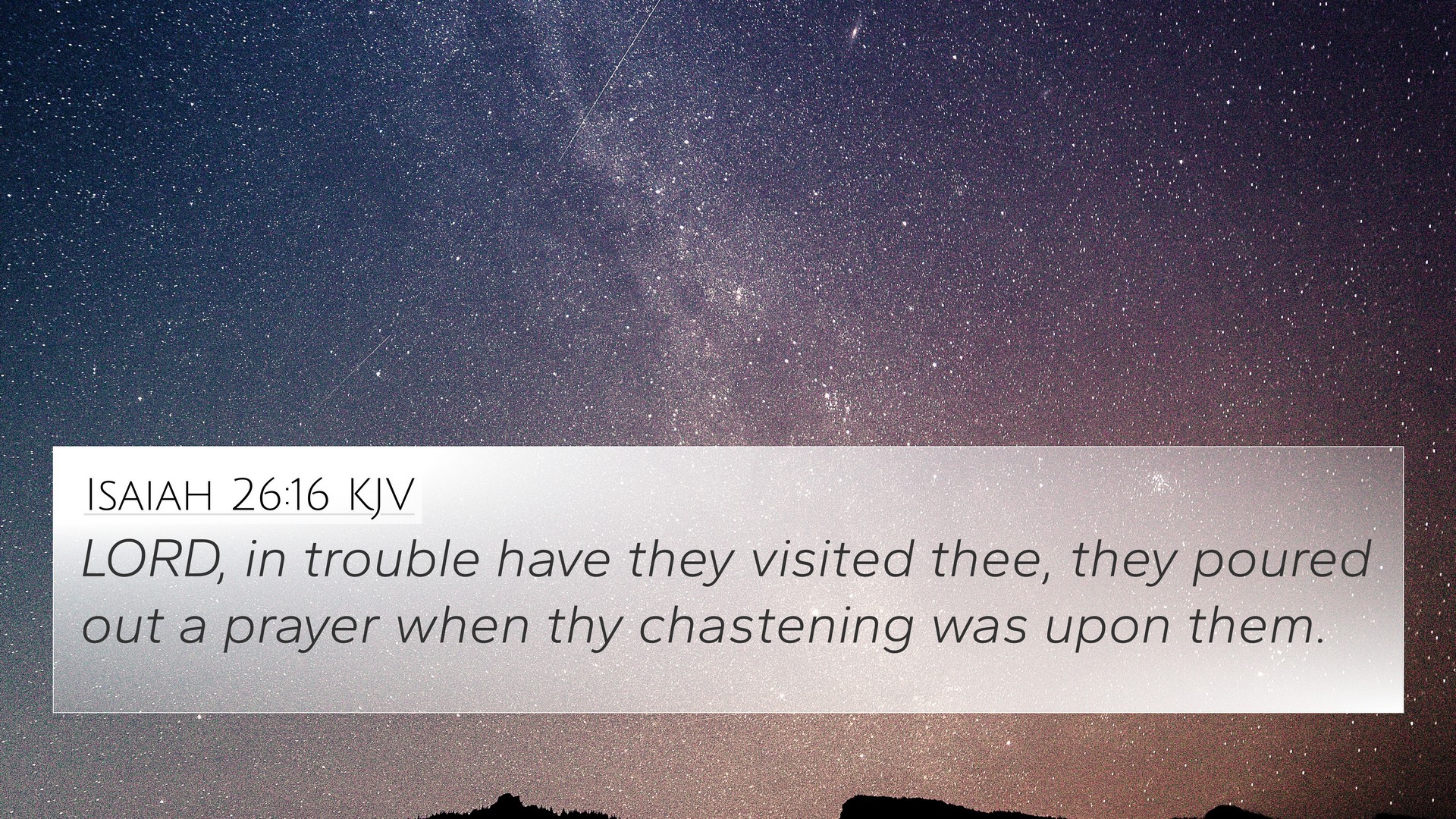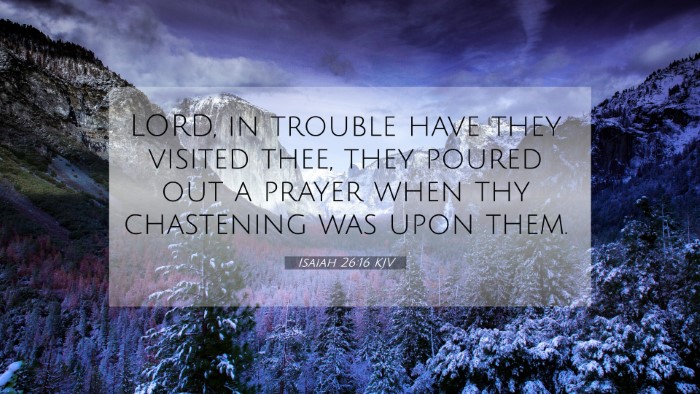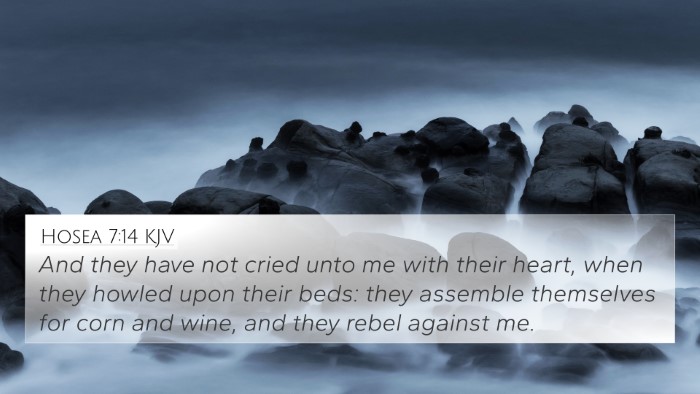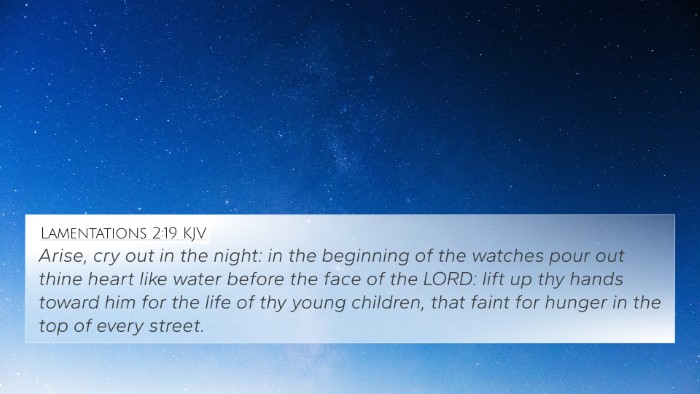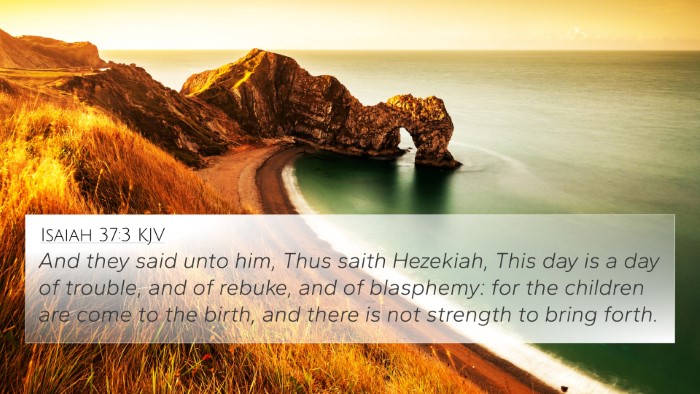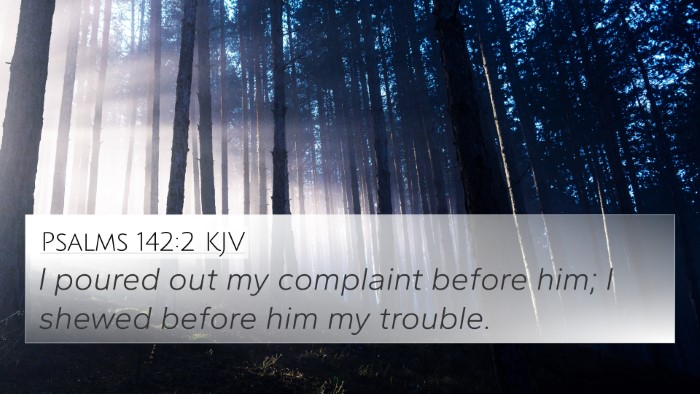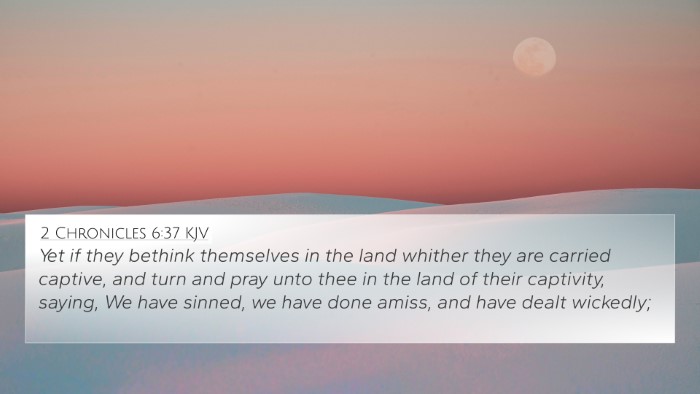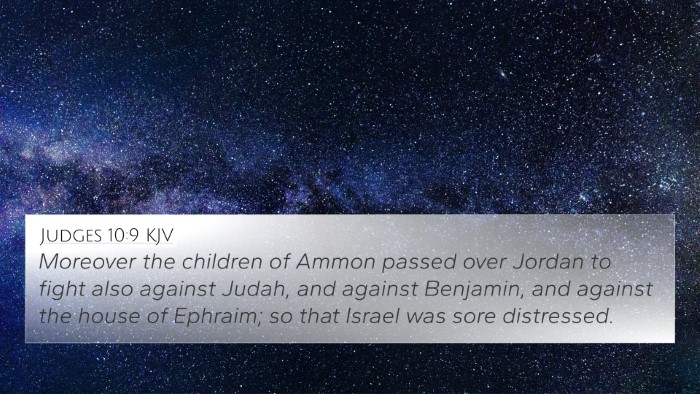Understanding Isaiah 26:16
Isaiah 26:16 states: "O Lord, in trouble have they visited thee, they poured out a prayer when thy chastening was upon them." This verse presents a profound reflection on the human condition in relation to divine presence, especially during times of distress.
Summary of Meaning
The essence of Isaiah 26:16 reveals the response of the faithful to God amid trials. The verse encapsulates the core belief that suffering prompts sincere prayer and reliance on God. Public domain commentaries provide insights that enhance our understanding:
-
Matthew Henry's Commentary:
Matthew Henry highlights that the people turn to God in their distress, illustrating that adversity brings them to a place of earnest prayer. Henry emphasizes the relationship between human suffering and heartfelt supplication to God, which serves as a reminder of God’s providence even during chastisement.
-
Albert Barnes' Notes:
Barnes discusses how this prayer reflects a reliance on God that emerges specifically due to affliction. He underscores the concept that trials often draw people closer to God, resulting in an outpouring of earnestness in their prayers, particularly when they feel the weight of God's correction.
-
Adam Clarke's Commentary:
Clarke interprets the verse by focusing on the sincerity of prayer during affliction. He notes that the phrase "they poured out a prayer" signifies not just mere requests, but a deeply earnest and desperate appeal for divine mercy, suggesting that true repentance often coincides with times of difficulty.
Thematic Connections
This verse points towards several broad themes common throughout the Scriptures:
- Prayer in Times of Distress: The act of turning to God in prayer during hardship resonates deeply in both the Old and New Testaments.
- The Purpose of Suffering: Understanding suffering as a means of drawing closer to God reflects a consistent Biblical theme.
- Divine Chastisement: The notion that God may discipline His people for their growth and correction is prevalent in scripture.
Bible Cross-References
Isaiah 26:16 can be further understood by exploring the following Bible cross-references:
- Psalm 119:67 - “Before I was afflicted I went astray: but now have I kept thy word.”
- Hebrews 12:6 - “For whom the Lord loveth he chasteneth, and scourgeth every son whom he receiveth.”
- James 5:13 - “Is any among you afflicted? let him pray.”
- 2 Corinthians 1:8-9 - Paul reflects on the comfort found in God amidst trials.
- Psalm 51:17 - “The sacrifices of God are a broken spirit: a broken and contrite heart.”
- Proverbs 3:11-12 - “My son, despise not the chastening of the Lord; neither be weary of his correction.”
- Romans 8:28 - “And we know that all things work together for good to them that love God.”
Interpreting the Verse
The interpretation of Isaiah 26:16 within the context of the broader narrative of scripture reveals the links between suffering, repentance, and divine mercy. Through biblical cross-referencing tools, one can identify connections that enhance the understanding of this verse.
Connecting Themes
Through Isaiah 26:16, one can navigate various scriptural themes and recognize how the experiences of prayer and restoration resonate throughout the Bible. Consider how the proactive act of prayer amidst suffering finds parallels in:
- Jonah 2:2 - Jonah calls to the Lord from the depths of his affliction.
- Luke 18:1-8 - The parable of the persistent widow emphasizes the importance of constant prayer.
- 1 Peter 5:7 - "Casting all your care upon him; for he careth for you." reveals a theme of reliance upon God.
Conclusion
Isaiah 26:16 invites believers to reflect on their relationship with God during challenging times. The verse encourages a deeper exploration of prayer, sin, and divine correction. Using comprehensive Bible cross-reference materials can significantly enrich one's study of scripture, revealing thematic connections and inter-Biblical dialogue.
Further Exploration
The insights from this verse, coupled with a thorough examination of Bible concordance and cross-referencing tools, provide the necessary resources for those interested in diving deeper into understanding both the immediate context of Isaiah 26:16 and its broader implications within the Christian faith.
